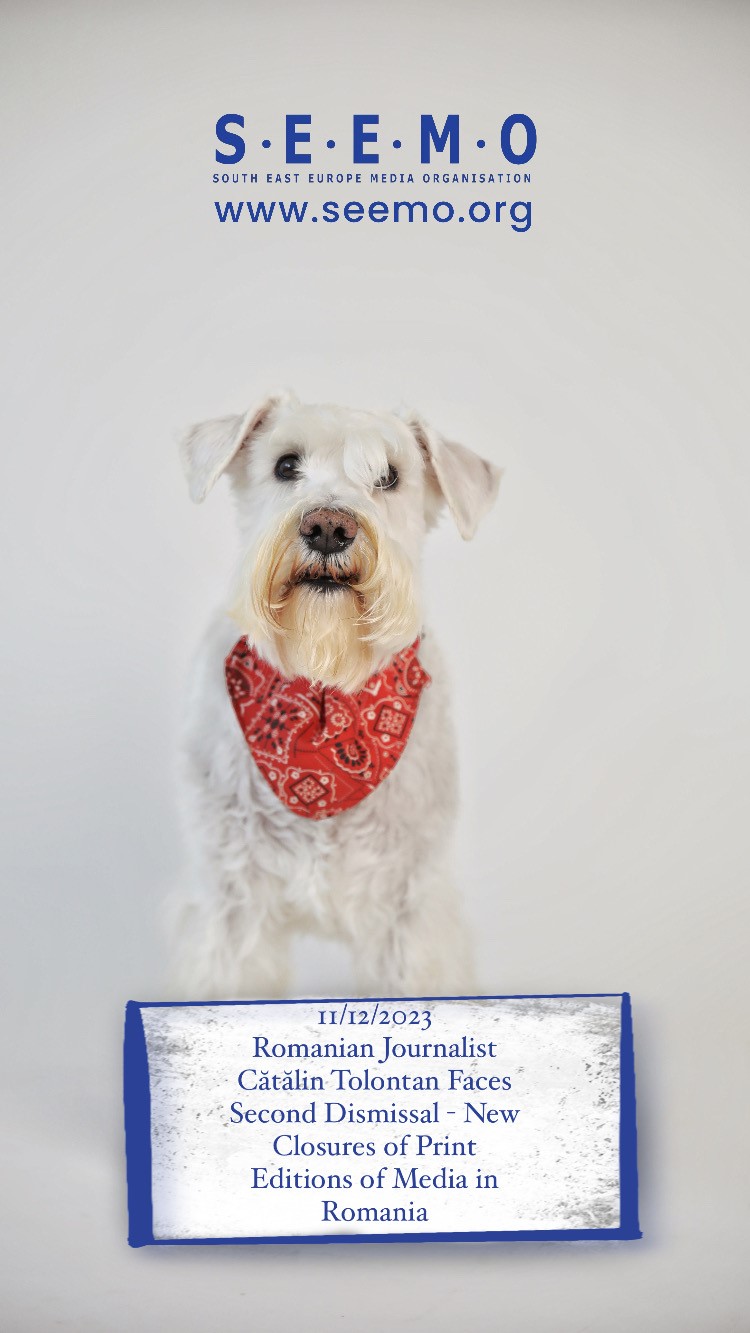In a tumultuous turn of events, Cătălin Tolontan, born 1968, an investigative and sport journalist in Romania, has experienced his second dismissal within a span of two months. Also other journalists were fired.
Cătălin Tolontan was first fired in the sport newspaper Gazeta Sporturilor. He worked for this newspaper 20 years: 15 years as editor-in-chief and 5 years as editorial coordinator for Ringier’s Romanian newspapers. On 31 October 2023, the newspaper ceased publishing the print edition of Gazeta Sporturilor and became only an online publication.
Tolontan and other journalists from Libertatea and Gazeta Sporturilor, signed in October 2023 an open letter (Official appeal of 25 editorial and non-editorial leaders) about situation in the media company.
The problems escalated further on 6 December 2023, a date that press organizations dubbed “a black day for the press.” The owner of the daily Libertatea announced a series of changes. Print sales of Libertatea had witnessed a staggering drop of over 60% since 2018, prompting a strategic shift towards a heightened focus on digital platforms. This change in direction necessitated internal cost-cutting measures to ensure the long-term sustainability of the media company. As part of the restructuring, three individuals were dismissed. While specific names were not disclosed in the official communication, subsequent reports revealed that Cătălin Tolontan, along with his deputies were among those affected.
Tolontan had been a pivotal figure in the media landscape, having been declared Journalist of the Year in Romania several times, and his investigative reporting even inspired a documentary nominated for prestigious film awards. In 2009, Gazeta Sporturilor published its investigation about a politician accusing her of embezzlement. After this investigation the politician subsequently resigned from her position in a ministry, and later she was sentenced to five years in prison for misusing public funds. Tolontan coordinated also other investigations, including the investigations connected to the fire at the Colectiv nighclub in Bucharest in October 2015, killing 64 people. The majority of victims died according to the investigation contracting infections in hospital. Connected to this investigation Tolontan and other journalists from Gazeta Sporturilor received many threats.
The broader context of this media shake-up involves the ongoing debate over editorial independence and the evolving nature of journalism in the digital age. All changes happened before 2024 – election year in Romania when four elections will take place.
The South East Europe Media Organisation (SEEMO) closely follows the latest developments in the media landscape in Romania.
South East Europe Media Organisation (SEEMO) is a regional non-governmental, non-profit network of editors, media executives and leading journalists in Southeast, South, East and Central Europe. SEEMO members are in Albania, Armenia, Azerbaijan, Belarus, Bosnia-Herzegovina, Bulgaria, Croatia, Cyprus, Czech Republic, Estonia, Georgia, Greece, Hungary, Kazakhstan, Kosovo, Kyrgyzstan, Latvia, Lithuania, Malta, Moldova (with the territory of Transdnestria), Montenegro, North Macedonia, Poland, Romania, Russia, Serbia, Slovakia, Slovenia, Tajikistan, Turkmenistan, Türkiye / Turkey, Ukraine and Uzbekistan. Austria, Italy, Vatican and San Marino have a special status in SEEMO. SEEMO has over 3000 individual members, and additional media as corporate members.
#fyp #mediafreedom #seemo #freespeech #southeasteuropemediaorganisation #ngo #journalist #journalistunderattack #romania #CătălinTolontan #SEEMO #pressfreedom #mediafreedom #freemedia

